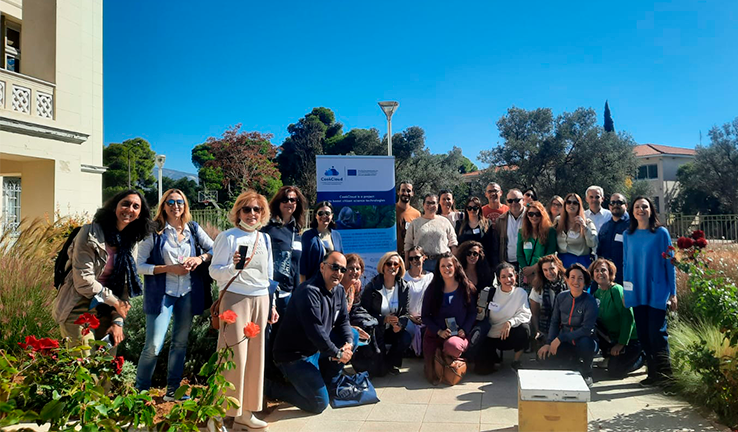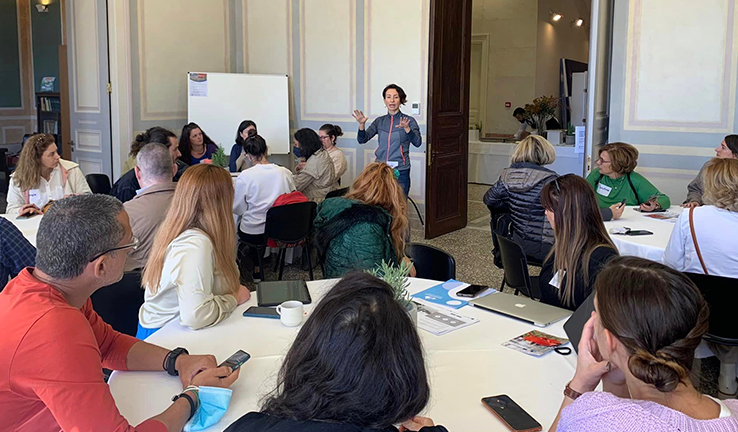How to explain biodiversity and environmental content in schools interactively? Is it possible for the students to learn how scientific methodology works through real projects? Citizen science platforms and services can help educators in these complex tasks.

In this regard, Cos4Cloud is working with the education sector thanks to its NKUA partner in Greece, which coordinates the integration of citizen science platforms, such as OdourCollect and Pl@ntNet, and some Cos4Cloud’s services into Greek schools. For this purpose, on the 22nd of October, a workshop at the Institute of Agronomic Sciences at Ktima Syngrou park (Athens) took place aiming to show teachers how to use the citizen science platforms OdourCollect and MINKA and the service MECODA. Twenty-seven teachers participated in the event.
During the workshop, participants did an outdoor exercise to report odours using OdourCollect, a citizen observatory to collect odour data. Any citizen can act as an observer and report geo-localised observations on the odour episode. These data can be used to build collaborative odour maps and identify potential odour-emitting sources, among other things.
OdourCollect enables students to categorise a smell and explore the scientific method while reflecting about the socio-environmental problem of odour pollution. The whole odour mapping process promotes critical thinking through data analysis, increases communication skills and encourages creative ways to share scientific results.

They also took plant pictures and uploaded them in MINKA, a new citizen science platform to collect biodiversity observations and environmental measurements, wich has a huge potential to be used in schools; among other things, teachers can create their own projects, interact with different schools and create a community of students there.
Before uploading the photos to MINKA, participants also used the Pl@ntNet-API identify website to experience how artificial intelligence can help identify plant species from their images. In fact, MINKA developers are also working on integrating some of the services Cos4Cloud has developed, such as Pl@ntNet-API.
MECODA: an online tools repository that can help students analyse citizen science data
The workshop was also an opportunity to show teachers the potential of using MECODA for students to analyse the data they collect with the citizen science platforms and introduce them to some statistical concepts. The Cos4Cloud team showcased it using the OdourCollect data in Greece and practised with these data by answering some questions such as: which categories of odours are the most prevalent in Greece (urban, agriculture, wastewater, etc.); the most common hedonic tone in each region, etc.
This workshop was organised by NKUA jointly with the Institute of Marine Sciences (ICM-CSIC), Science for Change and CREAF, as part of the activities Cos4Cloud is organising to test its platforms and services in real scenarios.

















